Neil Budnarain
Trust-ya: design of a multiplayer game for the study of small group processes
Sep 09, 2021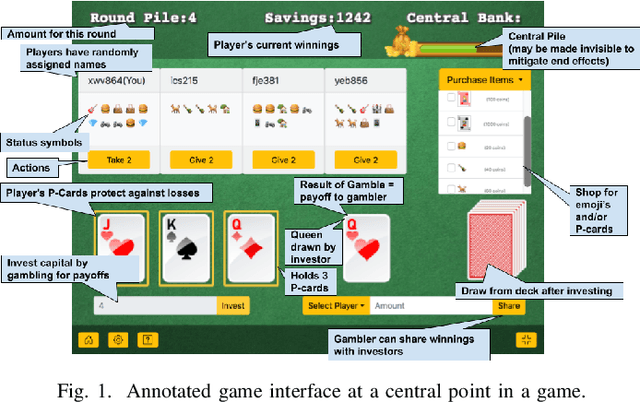
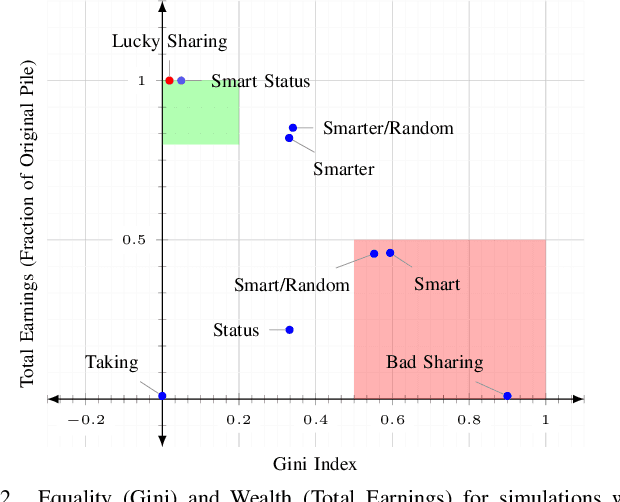
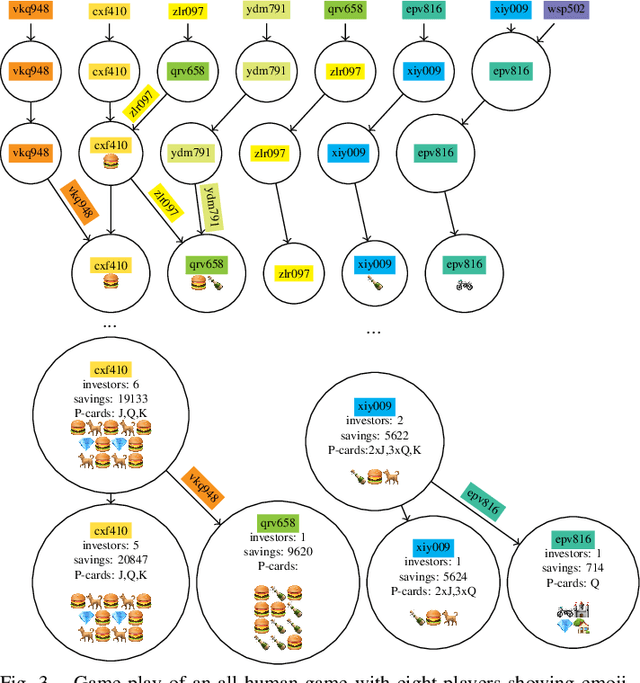
Abstract:This paper presents the design of a cooperative multi-player betting game, Trust-ya, as a model of some elements of status processes in human groups. The game is designed to elicit status-driven leader-follower behaviours as a means to observe and influence social hierarchy. It involves a Bach/Stravinsky game of deference in a group, in which people on each turn can either invest with another player or hope someone invests with them. Players who receive investment capital are able to gamble for payoffs from a central pool which then can be shared back with those who invested (but a portion of it may be kept, including all of it). The bigger gambles (people with more investors) get bigger payoffs. Thus, there is a natural tendency for players to coalesce as investors around a 'leader' who gambles, but who also shares sufficiently from their winnings to keep the investors 'hanging on'. The 'leader' will want to keep as much as possible for themselves, however. The game is played anonymously, but a set of 'status symbols' can be purchased which have no value in the game itself, but can serve as a 'cheap talk' communication device with other players. This paper introduces the game, relates it to status theory in social psychology, and shows some simple simulated and human experiments that demonstrate how the game can be used to study status processes and dynamics in human groups.
Improving Humanness of Virtual Agents and Users' Cooperation through Emotions
Mar 10, 2019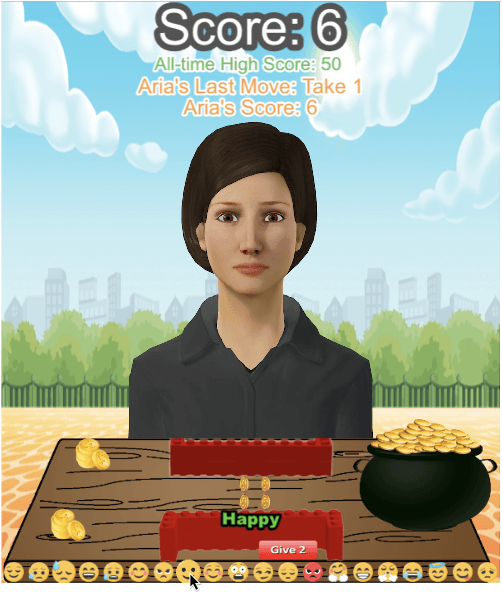
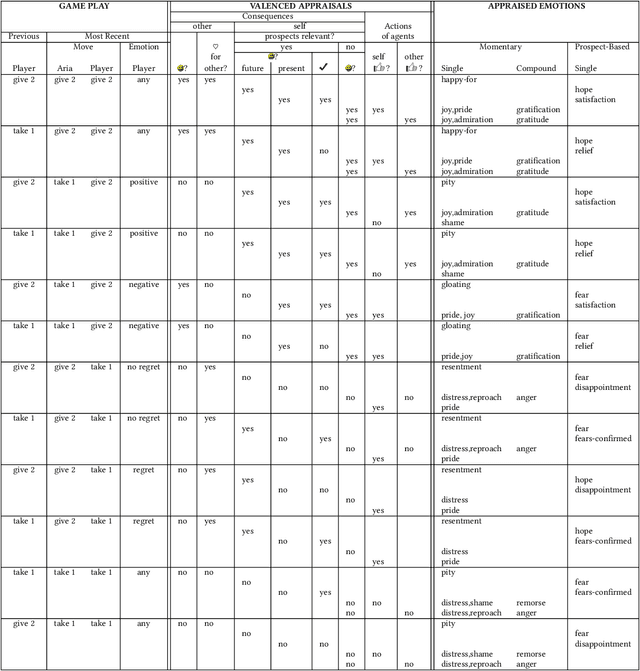

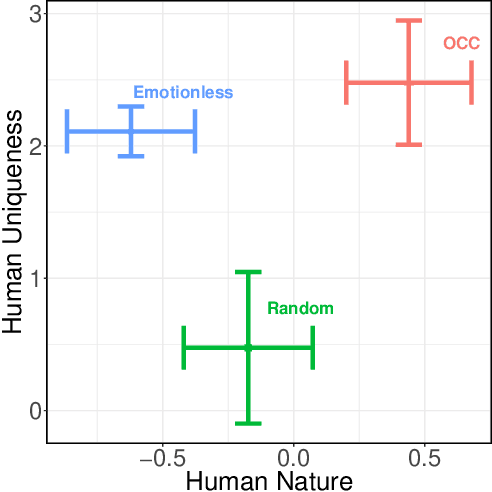
Abstract:In this paper, we analyze the performance of an agent developed according to a well-accepted appraisal theory of human emotion with respect to how it modulates play in the context of a social dilemma. We ask if the agent will be capable of generating interactions that are considered to be more human than machine-like. We conduct an experiment with 117 participants and show how participants rate our agent on dimensions of human-uniqueness (which separates humans from animals) and human-nature (which separates humans from machines). We show that our appraisal theoretic agent is perceived to be more human-like than baseline models, by significantly improving both human-nature and human-uniqueness aspects of the intelligent agent. We also show that perception of humanness positively affects enjoyment and cooperation in the social dilemma.
 Add to Chrome
Add to Chrome Add to Firefox
Add to Firefox Add to Edge
Add to Edge